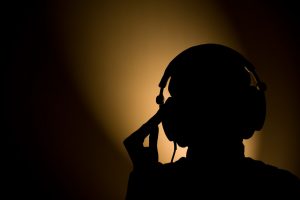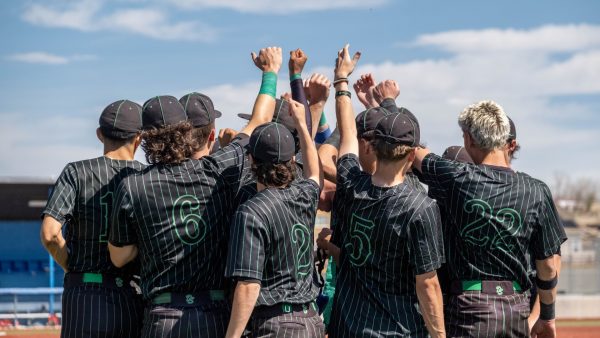Requiring Cameras to be on Isn’t Such a Good Thing
Why teachers should stop forcing students to have their cameras on
February 4, 2021
While there are certainly a number of reasons to have everyone leave their cameras on, there’s also quite a few to let students turn them off.
The biggest reason of all for this: anxiety. Quite a few members of the Doherty student body are no stranger to anxiety, and often struggle with it daily. This isn’t so much of an issue in person – in fact, for these students, being in-person is a huge benefit. They have the support and engagement of their peers directly, whereas when in front of a camera, it starts to feel as though we’re putting on a sort of performance. As Psychology Today puts it, being in front of a camera can pressure students to be “witty, or entertaining, or compassionate,” whereas being in-person allows us to be more relaxed around our peers when we’re working.
However, it’s not just the anxiety – though that does play a major role. I asked Sylvia Gonzalez, a Doherty Junior who has struggled with needing a camera on for a lot more than just her daily anxiety, how she felt about whether or not requiring cameras is a good thing, and she had a lot to say.
She explained that having cameras on can be very hard for her. For starters, having a camera on can be invading for anyone, but especially for people with social and other anxieties. You’re showing your room, which can be messy, to your classmates, and that can start to feel invasive when, for some people, their bedroom is their safe space. That and it can eat at you sometimes when you don’t know who’s looking at you. It can feel like there’s always eyes on you because, unlike real life, you can never tell where someone’s eyes are.
Sylvia brought up some other valid points, too, that I hadn’t realized about the camera issue. Her room is in their house’s basement, and her mother works remotely for a call center upstairs, which causes issues when the lighting of her dark basement isn’t enough and she has to travel upstairs and risk not only a caller’s private information being leaked, but her own words to be heard by whoever’s at the other end of her mother’s phone call.
While this can seem like a single-case scenario, it applies to a lot of things. Some people have crowded homes full of many students, all answering questions for their teachers and conversing with peers, and it can get really noisy and hard to hear who’s speaking when several different people are chattering at once. We’ve all had it happen at least once in a class. So, is it more valuable to have a camera on, or to have a quiet space of solitude for the sake of everyone’s ears?
Plus, some people have smaller internet bandwidths, or have poor signal strength in some areas of their home. Sylvia also has this issue. In her basement, having video on, as well as receiving it from everybody in a class that can have upwards of 20 people at once can be really taxing on her internet, and has caused her to lag out of more than a few classes.
Gonzalez and I discussed some more on the potential issues of having cameras on, and it starts to add up. Consider the idea of having siblings around, sometimes younger ones that have to be taken care of, as well as animals or other household things that are time-sensitive. It can reflect badly on the student when they’re trying their hardest to take care of their younger brother or sister and they have to be gone from their cameras several times during a class.
A lot of these matters are really private, as well as a student’s home life, and requiring cameras all the time can reveal things that a student would rather keep private, of any matter or degree. Sometimes we just don’t need the whole class knowing that our younger brother zooms around the house at a hundred miles an hour and hugs us every 5 seconds – plus, it can be distracting for everyone. Think about a time when you were having a mid-day snack or finishing your lunch and your teacher asked you what you were eating and drew the attention of everyone towards you, or maybe noticed that younger brother I mentioned earlier and it stopped the whole lesson.
In short, cameras can not only be invasive, but they can be troublesome, tricky, and sometimes risky.
The Consensus
Jacob Clark and Marynn Krull
There are incredibly valid reasons on both sides of the spectrum, whether it be requiring everyone to have their cameras on, or making it optional everywhere. But, as with most things, the solution lies somewhere in the middle. The best thing we can do, especially in times like these, is to understand each other. We as students and teachers should realize that some of us need to have our cameras off for entirely valid reasons, such as anxiety or a hectic home life with responsibilities. At the same time, it’s important to know that it’s a group effort from everyone. While there are some people that truly do need their cameras off, there are others that should keep them on so that the majority of virtual classrooms feel like the group is engaged and ready to learn.
In short, cameras should not be required of everyone, but we should all do our part to turn them on if we can and make online school just a little more bearable.
If you have any thoughts on why we should or shouldn’t turn on cameras, or have your own experiences to contribute, don’t hesitate to leave a comment. Stay safe and happy!





